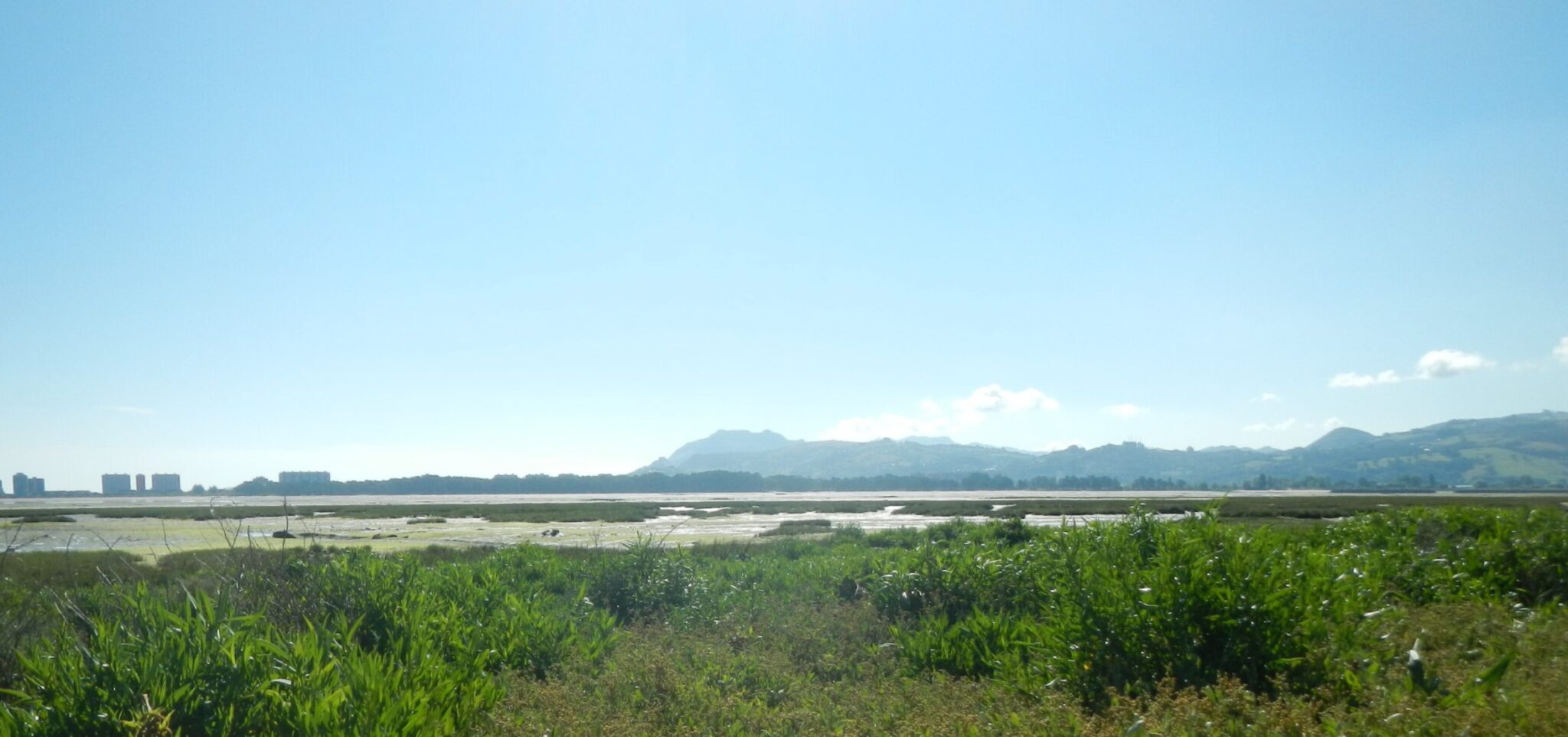The State Research Agency of the Ministry of Science and Innovation finances the MITIGACC project, developed by IHCantabria

The Santoña marshes are one of the areas where this project will be carried out
This project aims to advance knowledge on the impact of invasive species on climate change mitigation
The researchers of the Institute of Environmental Hydraulics of the Universidad de Cantabria (IHCantabria), Barbara Ondiviela and Ines Mazarrasa lead the MITIGACC project: “Deciphering the effect of invasive species(Baccharis halimifolia, Spartina alterniflora) on the climate change mitigation function of estuarine marshes”.
Coastal marshes are key ecosystems for climate change mitigation. They are characterized by high rates of CO2 absorption through photosynthesis, which accumulates in the form of organic matter, mainly in the sediment (roots), where it is stored for hundreds or thousands of years.
Marshes provide multiple ecosystem services that are key to society, such as maintaining biodiversity, protecting coastal areas from erosion and flooding, and regulating nutrient cycling, among others. But they are also among the most important natural carbon sinks on the planet, which is why salt marshes, together with mangroves and seagrasses, constitute the so-called blue carbon ecosystem group.
However, these ecosystems are among the most threatened on earth, due to multiple impacts, including the expansion of invasive species. The management of coastal wetlands, as a climate change mitigation measure, requires understanding the impact that their degradation has on the climate benefits they provide.
The project focuses on the invasive species Baccharis halimifolia and Spartina alterniflora. These species are colonizing the estuarine zones of the Atlantic coast of Europe, displacing native communities dominated by Juncus maritimus and Spartina maritima. Due to differences in size and structure in relation to native species, the expansion of these species could be having an impact on the ecosystem’s capacity to act as a carbon sink.
MITIGACC seeks precisely to understand the impact on the distribution of native species and their ability to act as carbon sinks. To meet this objective, the project will apply different approaches, such as field experimentation and remote sensing, and will combine different techniques for greenhouse gas analysis, molecular composition and spectral signal measurement.
The project, which will run for 3 years, has a research team made up of personnel from IHCantabria and two foreign institutions, the University of Costa Rica and California State University, East Bay.
IHCantabria
The Institute of Environmental Hydraulics of the Universidad de Cantabria (IHCantabria) is a joint research institute focused on the integrated management of aquatic systems. Founded in 2007, its mission is to promote scientific excellence and its transfer, to drive innovation, in order to contribute to accelerate the achievement of the Sustainable Development Goals.



